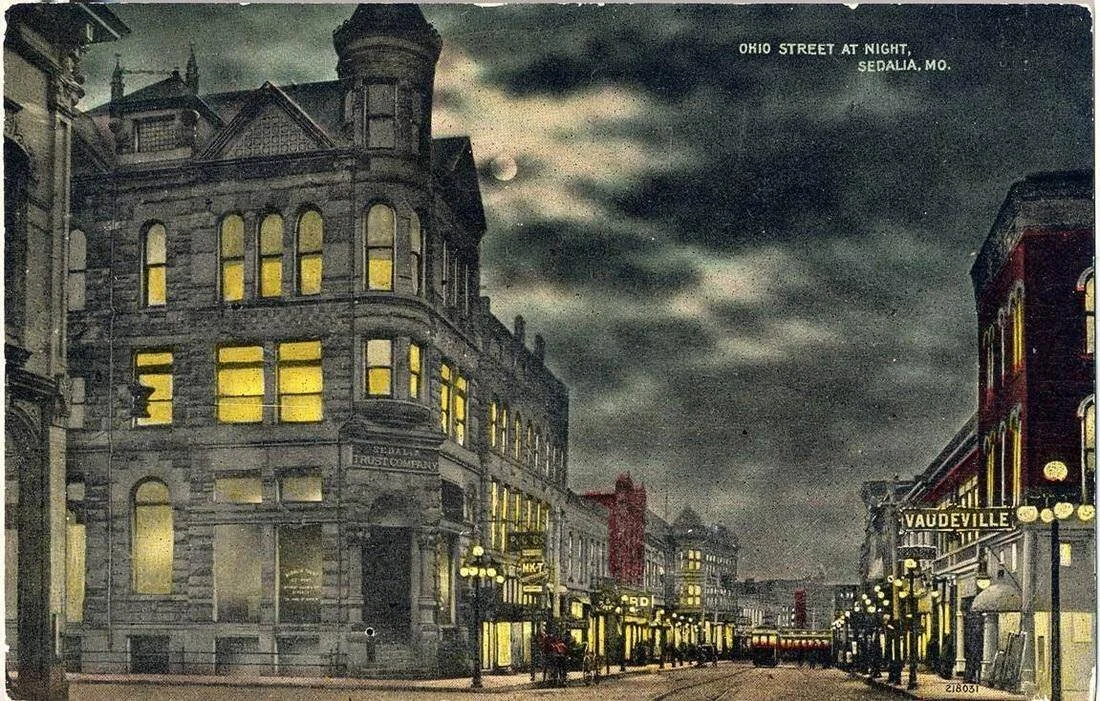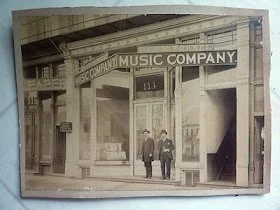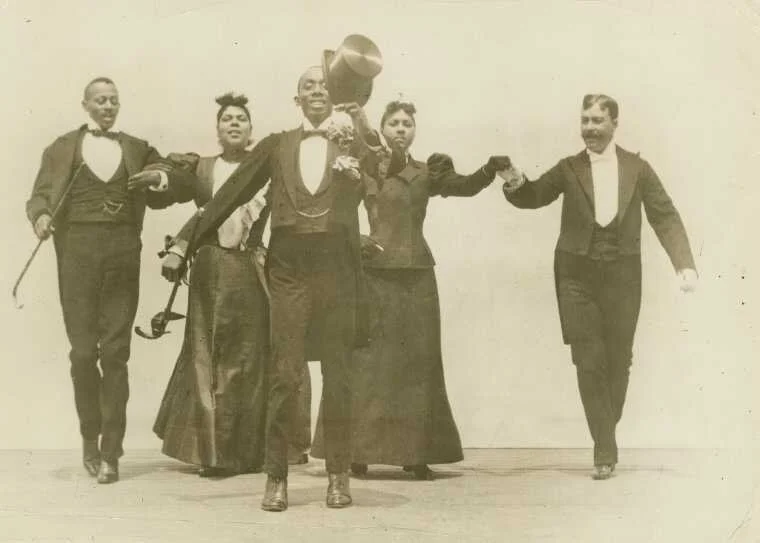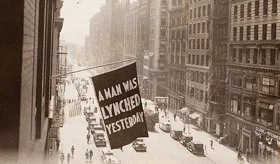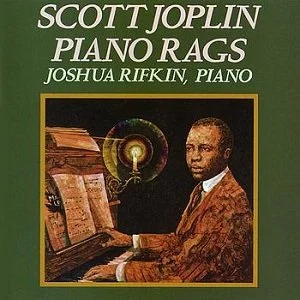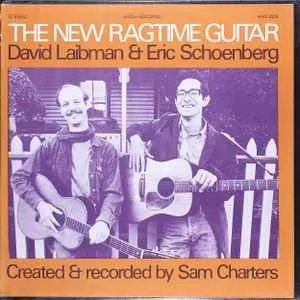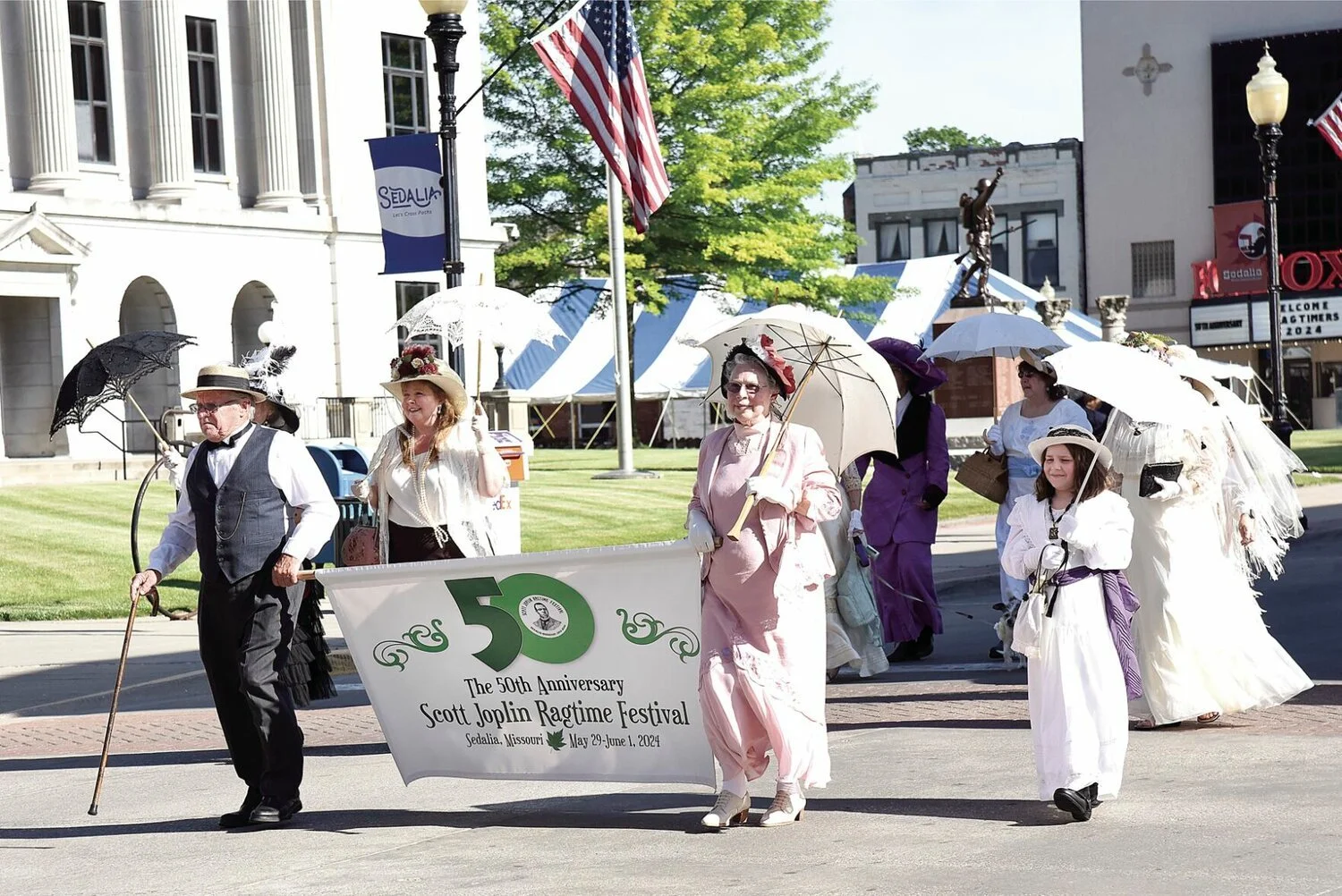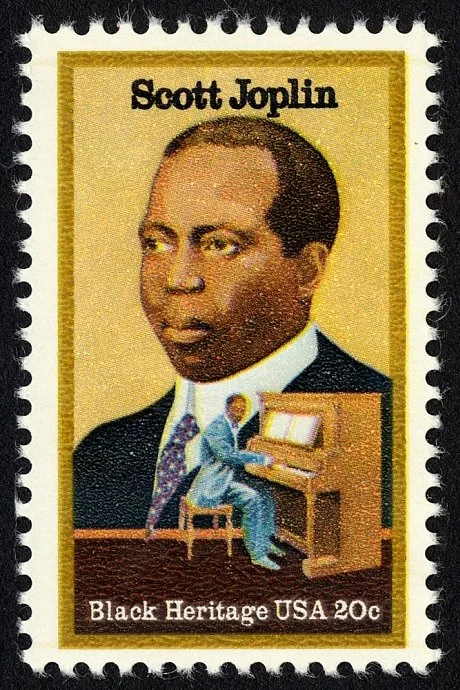THE MAPLE LEAF RAG
SEDALIA, MO, 1898 — The piano had been played, banged, and caressed, but no one had ever made it speak like this. Listen:
The Maple Leaf Club was not the only juke joint in Sedalia. The central Missouri city’s sultry mix of ex-slaves, ex-Confederates, prostitutes, and railroad bums made it the "Sodom and Gomorrah of the nineteenth century." But as that long century of slavery, emancipation, and Jim Crow careened to a close, Sedalia’s Maple Leaf Club was the place to be. Beyond the booze, the draw was what folks were starting to call “ragtime.”
One afternoon in September 1898, a young pianist strode into the office of a small music publisher, sat down and played a song. The publisher thought the work impressive but too complex to sell. His son disagreed, convinced the father, and in 1899, “The Maple Leaf Rag” burst into America.
Scott Joplin always considered ragtime to be classical music. A gifted musician and son of an ex-slave who played violin at plantation dances, Joplin studied piano with a German immigrant who shared his love of Beethoven, Mozart, and opera. But it was while roaming the South, playing in bars and honky-tonks, that Joplin mixed his classical training with the soul of work songs, gospel hymns, and dance music.
As ragtime spread, first by delighting crowds at the 1893 Chicago World’s Fair and later on the wings of Joplin’s “Maple Leaf Rag,” newspapers called it “a veritable call of the wild.” And once the new century began, the call was heard everywhere. Sheet music, player piano rolls, phonograph records, and piano contests all tickled the keys of ragtime. The music was played by orchestras, wind bands, even the U.S. Marine Band, whose 1906 version of “The Maple Leaf Rag” is the first on record. Included in the songbook of the White Star Steamship line, “The Maple Leaf Rag” was played on The Titanic.
Mainstream (read: white) musicians were appalled. From the journal Etude: “The counters of the music stores are loaded with this virulent poison which in the form of a malarious epidemic, is finding its way into the homes and brains of the youth to such an extent as to arouse one's suspicions of their sanity." But the rags rolled on.
Joplin eked out a modest living on royalties — a penny a sheet — from “The Maple Leaf Rag.” He soon moved to St. Louis where he composed dozens more rags. Pineapple Rag. Gladiolus Rag. The Ragtime Dance, The Entertainer. . . But the rest of the story is set to his saddest song, one of the saddest ever written. Listen (and try not to tear up.)
Even if Joplin considered ragtime to be classical, even if America tapped along, the 1900s were the nadir of American race relations, replete with lynchings, ugly stereotypes, and raw racism. Still hoping to go beyond ragtime, Joplin wrote two operas, a ballet, and lilting pieces like “Bethena” and “Eugenia.” Moving to New York in 1907, he got none of these performed. And in what one biographer called “a race against time,” he felt his vitality and his skills being sapped by syphilis.
When Joplin died in 1917, at age 48, he was buried in an unmarked pauper’s grave. He asked that “The Maple Leaf Rag” be played at his funeral, but his wife thought it too upbeat. “When I'm dead twenty-five years,” he’d told a friend, “people are going to recognize me." It took a generation more.
With jazz just tuning up, the age of ragtime seemed long ago. A few big bands played a few Joplin tunes, but he remained obscure until 1970 when a young pianist, Joshua Rifkin, released Scott Joplin: Piano Rags. “The Maple Leaf Rag” was the first cut.
The rags sold a million copies. “The Entertainer, “ part of the Joplin soundtrack to the Oscar-winning movie “The Sting,’ was a huge hit. Guitarists began playing ragtime, and in 1975, the best-selling novel Ragtime captured the entire age. The following year, Joplin won a posthumous Pulitzer for his opera “Treemonisha,” which was finally performed. Based on the sketchy details of his brief life, Hollywood put out a glitzy biopic. Scholars found his grave and marked it.
Each May, the Scott Joplin International Ragtime Festival comes to Sedalia, MO. The city comes alive with that jaw-dropping cascade of notes, falling like rain, floating like petals, even as bass notes run up and down, round and round. The effect is dazzling, as if two pianists were playing. The joy of the music, the sheer fun of it all comes across as uniquely American, uniquely African-American.
And somewhere in the syncopation, the best pianists honor not just the music but the words of Scott Joplin.
“Don’t play this piece fast. It is never right to play ragtime fast.”
HEAR FIVE (MORE) SCOTT JOPLIN RAGS IN “I HEAR AMERICA SINGING”
Audio files of “The Maple Leaf Rag” and “Solace” are used under the Creative Commons Attribution-Share Alike 4.0 International license.

